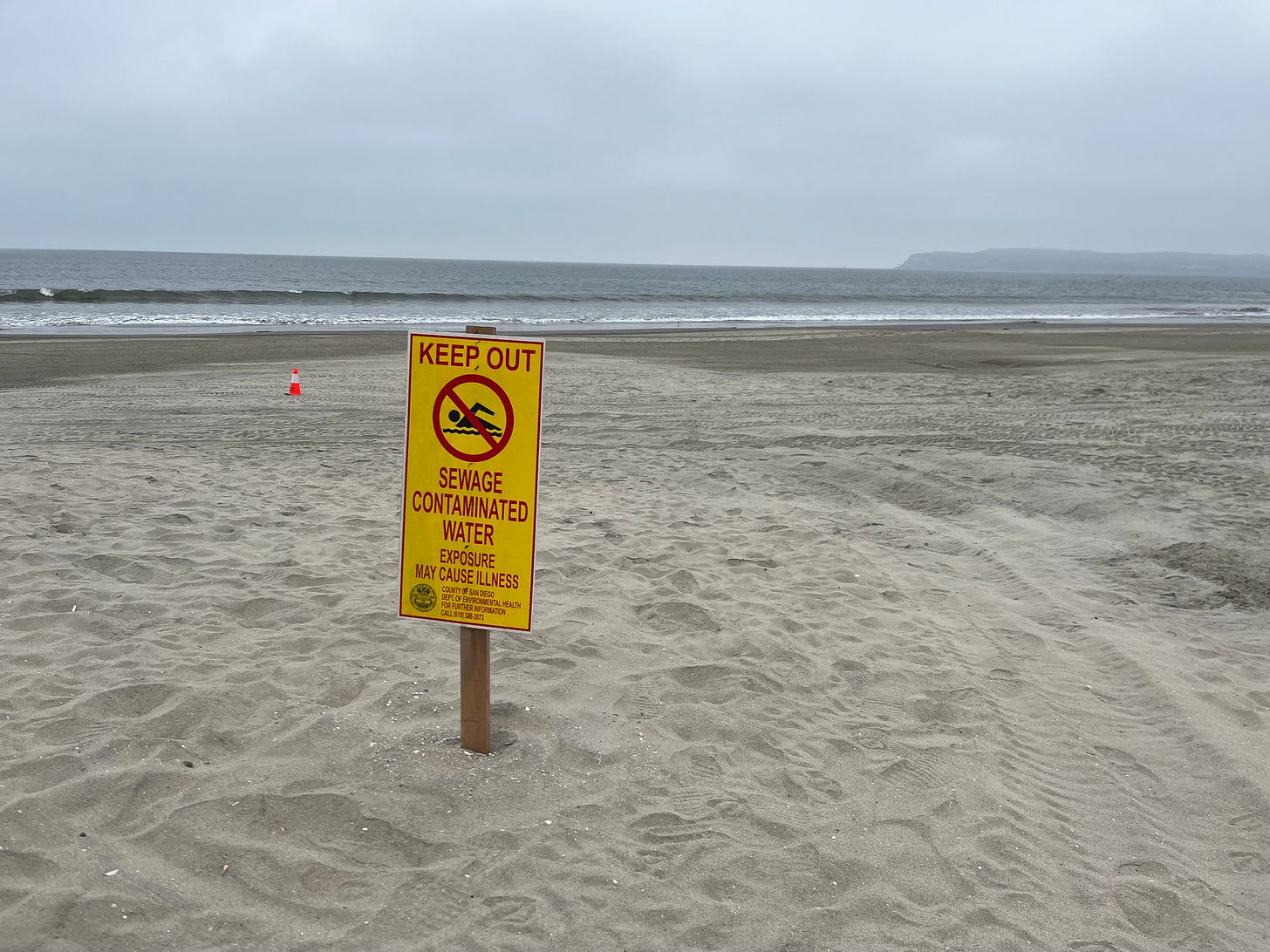
Coronado kids have grown up seeing ocean waves crashing on North Beach, fireworks exploding on the Fourth of July and tourists carrying shopping bags full of souvenirs from Orange Avenue shops. All these memories scream “classic Coronado,” but due to climate change and environmental damages, they’ve been tainted.
The ocean is unswimmable due to sewage, fireworks release harmful gasses into the atmosphere and debris into the ocean and excessive consumerism has an association with increased wastefulness that is filling up landfills.
These environmental stressors have motivated some Coronado High School students to move toward sustainability to protect the planet.
“The biggest influence and motivation for me to be more sustainable has been watching the situation with our beach and waters get worse as I’ve grown up,” senior Jackson Garrett said. “I’ve lived in Coronado my entire life, and since elementary school the beach has really gone down. I remember back when I was younger it was always clean. There were never days that we had to stay out of the water. Now the beach is either closed or has ‘swim at your own risk’ warnings most days.”
Garrett is also a local surf instructor, so his job has been impacted by the sewage crisis.
“I’ve had to cancel lessons or move them to other beaches because the water here just isn’t safe to be in,” he said. “The water quality isn’t the only negative thing though. Climate change is also becoming more apparent as time goes on. In the past year, we've had the craziest storms and flooding I’ve ever seen. The water comes up to the rocks by the Shores at high tide now, and that’s every day.
“All of this is really frightening and makes me worry that my kids won’t get to have the same wonderful experience living in a nice beach town like Coronado as I did. If people don’t see the signs and do their best to fix what we’re already experiencing, future generations will grow up in a world where they can’t enjoy the ocean and the outdoors.”

Conscious care for the changing environment is a growing priority at the high school.
“I’ve always been very careful with my actions, making sure these are benefiting the environment,” said sophomore Dhara Jost. “By learning about the factors of climate change from a young age, I’ve felt very influenced to do the best that I can to help. I think education is one of the main ways to help. If people understand how they can help, it raises the chances of them actually following through with it. Having people fully comprehend that we have to do something about this worldwide issue is the first step, and then they can go into different ways they can help.”
Jost is an intern with the local environmental nonprofit Emerald Keepers. As an environmental advocate, she understands the urgency behind the issue of climate change, but, she said, she is “concerned that so many other people don’t seem to be concerned and frustrated that more people don’t take it seriously.”
However, it’s not just the sewage spills and climate change that distresses students. Our closets are a massive sustainability problem.
Since she was a child, senior Emily Novotny has always been conscious of the Earth’s natural resources, and after graduating in June, she will attend Hawai’i Pacific University, majoring in environmental science. She is bothered by the amount of excess in today’s shopping culture.
“I think that just knowing how much fast fashion affects the environment and how it can affect people, through unethical labor laws, inspires me to be more sustainable,” Novotny said. “The mass production of fast fashion with unethical materials makes me so sad because I love the Earth. I’m sustainable by buying mainly second-hand clothes unless I really need to shop new. Some solutions to fast fashion consumerism are thrifting, learning how to sew or regifting.”
Novotny shops at thrift stores or through the reselling app Depop, which has amassed serious popularity among Gen Zs in the past five years.
Reflecting on lifestyle choices is important, whether it’s about shopping sustainably or ordering takeout. When it comes to the latter, think about what your typical to-go bag looks like. Is it shoved with stacks of napkins? Is it filled with single-use plastic utensils?
The issue of single-use plastics in Coronado is growing.
“I'm sustainable in the way I package my food,” said Alexa Maldonado, a junior who is also an Emerald Keepers intern. “I try to shy away from single-use plastic containers, and I also try to bring a cup with me if I'm going out to get coffee. I believe big companies have the biggest fault when it comes to contributing to the pollution of our planet. So, I think it would only be fair if those big companies took initiative and stopped producing so much waste. It is frustrating that people care more about money and keeping businesses thriving than caring about the health of our home.”
While high school students are can’t stop corporate greed, Coronado’s future is being looked out for with sincerity and care by those who are still in integrated math.
Maria Laguna is a Coronado High School senior and an Emerald Keepers intern.




